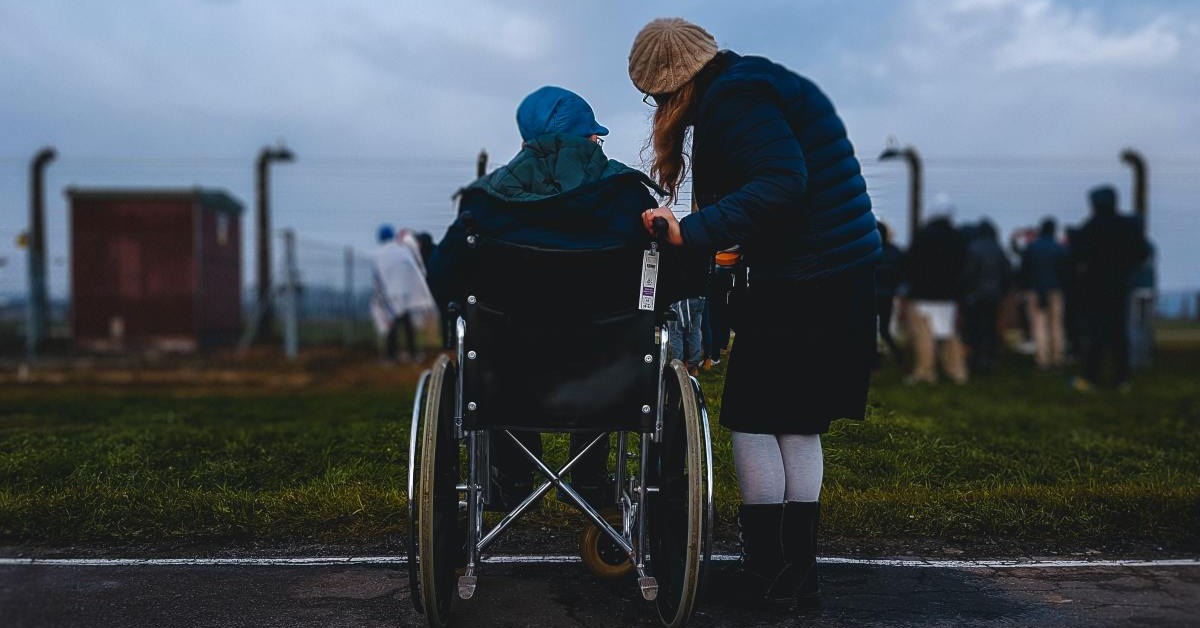
Where Do Epidemiologists Work?
Epidemiologists work in many settings, including hospitals, universities, and federal, [...]

Social workers aspire to help and advocate for society’s most vulnerable individuals and groups. Yet, like health care work, social work necessitates much more than altruism and dedication. The path to becoming a social worker requires a rigorous course of education, training, and passing through a strict licensing system that ensures you have the skills to be an effective and ethical professional.
The social work licensing system enables the field to guarantee professionals are up-to-date on research, policy, and practice. A board-certified social worker—more precisely, a Board Certified Diplomate (BCD) in Clinical Social Work—goes beyond the highest level of licensure. Earning approval from the American Board of Clinical Social Work (ABCSW) indicates that a professional has met and maintains the highest standards of this profession.
In this article, we answer the question do I need to be board certified as a social worker, as well as the following:
Founded in 1987, the American Board of Clinical Social Work assembles the premier experts in the field to set the highest standards for social work practices and professionals working today.
Earning an ABCSW credential indicates that a clinical social worker has undertaken extensive continuing education, training, and practicum hours in the field. The organization offers the generalist BCD as well as a BCD in practice with children and their families, clinical supervision, and psychoanalysis.
Here’s a quick note on the term ‘board-certified.’ Legal licenses for practice such as the LBSW, LMSW, and LCSW—all of which we’ll cover below—require the approval of a board of directors, as does the BCD. When a social worker is board certified, however, it refers to this terminal certification.
| University and Program Name | Learn More |
|
Virginia Commonwealth University:
Online Master of Social Work
|
Obtaining those three letters after your name is no easy feat, and professionals in the field recognize the hard work that goes into it. Government agencies, the courts, insurance companies, and medical professionals all acknowledge the BCD as a sign of a social worker’s dedication to excellence in social work practice. Consumers of health and human services or mental health support seek out this level of advanced practice, confident that they’re receiving the best care. In some situations and settings, a BCD leads to reimbursements and higher pay.
In addition to the professional prestige a BCD generates, insurance companies feel more confident covering social workers with the credential. Typically, they receive a 10 percent discount on liability insurance premiums.
It should come as no surprise that the certification process is lengthy. Here’s a look at the ABCSW’s requirements for the BCD in advanced generalist practice.
Aspiring BCD clinicians must have a Master of Social Work (MSW) degree from a university with accreditation from the Council on Social Work Education (CSWE). An applicant’s transcripts should include coursework and practicum hours in direct practice.
Applicants must hold the highest possible level of state licensure for clinical practice in the state(s) where they practice.
The application requires a minimum of 3,000 hours of “direct general clinical social work practice” in the past decade. At least 300 of the practice hours must have occurred in the past 12 months. These should not be confused with social work practice hours described below.
Applicants must accrue at least five years of post-graduate social work. These must include 3,000 hours under clinical supervision, at least half under the tutelage of an advanced clinical social worker. An additional 4,500 hours of autonomous social work practice is required, bringing the total to 7,500 practice hours.
Unless the applicant’s state licensing boards do not require continuing education, the applicant must have at least 40 hours of study from the past three years.
Applicants submit evaluations from three peers in the field who meet all of the clinical practice standards above or hold an MD.
Every year, BCD clinicians undergo recertification to prove they meet the board’s ethical, continuing education, and practice standards.
You do not need a BCD to practice social work, although some advanced positions may require or strongly prefer board-certified candidates. You do need to meet the social work licensure requirements for your state.
Further down the line, perhaps after earning your doctoral degree in social work or shifting your career focus, the BCD can open greater career opportunities. The ABCSW notes that many BCD professionals become eligible for higher pay scales and even special achievement awards with veterans affairs agencies.
As we touched on before, licensure is necessary both in clinical social work and macro-level generalist or administrative positions. Each state sets its own standards for social work and the type of practice you can complete with that license. Private organizations—such as the National Association for Social Workers (NASW)—offer additional board certifications in niche areas of work.
The most common licenses—in order of required expertise—are the Licensed Baccalaureate of Social Work (LBSW), Licensed Master of Social Work (LMSW), Licensed Master Social Worker – Advanced Generalist (LMSW-AG), and the Licensed Clinical Social Worker (LCSW).
No matter the state, each license is obtained through examination administered by the Association of Social Work Boards (ASWB)s. Applicants must have earned either a bachelor’s or master’s in social work and completed a set number of practice hours to sit for the exams. The higher the license, the more opportunities for advancement open up within a social worker’s state.
You also will find entry- and mid-level licenses such as the Social Work Associate or the Licensed Advanced Practice Social Worker. Eligibility and career options depend on state requirements.
Whether an aspiring social worker attains a BSW or another baccalaureate degree, the MSW is the main pathway to further licensure. While an MSW is not necessary for all social work careers, it is mandatory for social workers who wish to practice clinical therapy. Master’s programs provide both a foundation of social work knowledge and advanced training in a specialized area.
Perhaps most importantly, MSW students complete necessary fieldwork. The program links each student with a social service organization or government agency to gain hands-on social work practice and the competency to help launch their careers after graduation.
Universities offer a range of options for earning this degree. If you come into the program with a BSW, for example, you may qualify for the advanced standing track, in which you can apply your undergraduate credits toward your master’s degree. Advanced standing students skip the foundational courses and complete about half of the required clinical supervision hours as the rest of their cohort. Advanced standing courses can take as little as 12 months.
Apart from advanced standing programs, an MSW generally takes between 16 and 32 months to complete. Students study full-time for four or five terms in an online or in-person format. Part-time students with full-time jobs can take three years or more to complete their MSW.
MSW program admission departments are relatively lenient. Because MSW programs cover social work theory and practice thoroughly, coursework prerequisites are typically minimal or nonexistent. All applicants need is a bachelor’s from an accredited university. Many programs require a minimum 3.0 GPA, but some waive that requirement if applicants earn sufficient GRE scores or otherwise demonstrate the aptitude necessary to succeed in the program. Popular college majors among MSW applicants include social work, psychology, sociology, humanities, and the arts.
The applicant’s whole backstory—from volunteer work and work experience to their goals for the future—ultimately determines eligibility. If you take a look at Tulane University’s admission checklist, for example, you’ll see that students must have:
The university also requires two letters of recommendation, a personal essay, a resume, and official transcripts.
Social work master’s degree programs typically cover a broad range of social work theory and practice. All students begin by building a framework for social work. They study topics like human behavior, social work history, community organization, social welfare policy.
The second and third terms expand on these areas and add specialized coursework. Electives cover areas of care including gerontology, school social work, or advocacy and politics. These terms also begin to incorporate practicum hours—in some cases, up to 21 hours a week.
Most programs culminate in a capstone project to present areas explored in their generalist or clinical social work practicum.
After completing foundational coursework, MSW candidates may fashion an academic area of specialization through elective courses. Your specialization typically aligns to your field placement, providing graduate-level experience in your intended professional area of expertise. As such, your specialization helps determine your future career path.
Social work offers a broad range of specializations at the micro, mezzo, and macro levels. It is important to note that each MSW program offers only a selection of specializations; you must check to ensure that programs you are considering offer the specialization you want.
Depending on the program, students also can earn a dual degree with their MSW. Commonly paired degrees include law, medicine, public health, or business.
The best MSW programs in the country prepare students for the ASWB exam and their required practicum hours. They also open the doors to professional connections within their field of study. Each program below is CSWE-certified.
Columbia offers a highly specialized curricular track to direct your social career toward popular areas like child welfare or becoming a clinical mental health professional. The university also offers continuing education coursework for those working toward or maintaining licenses and board certification.
Whether you opt for an online or in-person MSW track, Tulane offers access to nearly 300 field agencies across the country for each student’s practicum. Over 90 percent of recent graduates passed the master’s exam for licensure and over 80 percent passed the clinical exam. The school also offers pathways for a DSW and various dual degrees.
Ranked as the top social work program by US News & World Report, UMich offers highly specialized MSW tracks in areas like community change, policy, and the welfare of children and families. Graduating classes from 2015 through 2019 all had an above-average pass rate for the master’s exam, clinical exam, and advanced generalist exams.
Virginia Commonwealth has housed a school of social work since 1917; today, it’s one of approximately 90 institutions offering a fully-online Master of Social Work. US News & World Report ranks the program among the nation’s top 25 and best in the state of Virginia. Its online program, which focuses exclusively on preparing clinicians, is largely self-paced for the convenience of busy professionals earning their degrees while working full-time.
Questions or feedback? Email editor@noodle.com

Epidemiologists work in many settings, including hospitals, universities, and federal, [...]

Domestic violence call centers in the US field 20,000 calls [...]

If you're passionate about improving older adults' quality of life [...]

You'll need the right licenses and certifications to practice social [...]

Top earners in substance abuse social work can earn over [...]
Categorized as: Social Work, Social Work & Counseling & Psychology